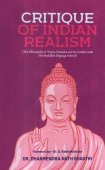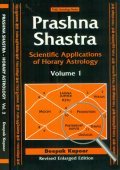Reasoning: 3 definitions
Introduction:
Reasoning means something in Buddhism, Pali, Hinduism, Sanskrit. If you want to know the exact meaning, history, etymology or English translation of this term then check out the descriptions on this page. Add your comment or reference to a book if you want to contribute to this summary article.
In Hinduism
Yoga (school of philosophy)
Source: ORA: Amanaska (king of all yogas): A Critical Edition and Annotated Translation by Jason BirchReasoning is denoted by the Sanskrit term Tarka, according to the Amanaska Yoga treatise dealing with meditation, absorption, yogic powers and liberation.—Accordingly, as Īśvara says to Vāmadeva: “[...] Some have intellects which have become insensitive through reasoning (tarka) and [philosophical] speculations, [and some] are elevated by [their] conceit and ego. Some are self-satisfied with pride, [rendered] stupid by [their obsession with] caste, and [some] are confounded by activities such as meditation. Generally speaking, the multitudes of people have deluded minds and various [mental] disturbances, for, those who experience nothing but the bliss of the undisturbed, natural [no-mind] state, are not seen in the world. [...]”.

Yoga is originally considered a branch of Hindu philosophy (astika), but both ancient and modern Yoga combine the physical, mental and spiritual. Yoga teaches various physical techniques also known as āsanas (postures), used for various purposes (eg., meditation, contemplation, relaxation).
In Buddhism
Tibetan Buddhism (Vajrayana or tantric Buddhism)
Source: Google Books: The Crystal Mirror of Philosophical SystemsReasoning refers to one of the “Eleven Sources of Valid Cognition” (among Cārakīya Jaiminīyas) which are known in Tibetan as: tshad ma bcu gcig.—Most Mīmāṃsakas assert six sources of valid cognition, while the Cārakīya Jaiminīyas assert eleven sources of valid cognition [e.g., reasoning] and also teach a division into forty-eight functional forces.
Source: ORA: Amanaska (king of all yogas): (Tibetan Buddhism)Reasoning is denoted by the Sanskrit term Tarka, according to the thirty-third chapter of the Saṃvarodayatantra: a Buddhist explanatory Tantra of the Cakrasaṃvara cycle.—Accordingly, while describing the no-mind meditation: “[...] Free from meditation and concentration and beyond [both] Yoga and reasoning (tarka), he leads people to absorption in ‘suchness’, when the mind becomes steady in awareness. [...]”.

Tibetan Buddhism includes schools such as Nyingma, Kadampa, Kagyu and Gelug. Their primary canon of literature is divided in two broad categories: The Kangyur, which consists of Buddha’s words, and the Tengyur, which includes commentaries from various sources. Esotericism and tantra techniques (vajrayāna) are collected indepently.
See also (Relevant definitions)
Partial matches: Reasoning, Te.
Query error!
Full-text (+534): Tarka, Apoha, Vitarka, Anumanokti, Uha, Abhyuha, Vitarkana, Tarkavidya, Tarkana, Kutarka, Pratarkana, Atmaja, Citta, Tarkajnana, Atarkya, Atarka, Sampaka, Nyaya, Uhapoha, Apohana.
Relevant text
Search found 293 books and stories containing Reasoning, Reasonings, The reasoning; (plurals include: Reasonings, Reasoningses, The reasonings). You can also click to the full overview containing English textual excerpts. Below are direct links for the most relevant articles:
Tattvasangraha [with commentary] (by Ganganatha Jha)
Verse 3151-3153 < [Chapter 26 - Examination of the ‘Person of Super-normal Vision’]
Verse 428-434 < [Chapter 8 - Examination of the Doctrine of the Permanence of Things]
Verse 92-93a < [Chapter 2 - Examination of the Doctrine of God (theism)]
Manusmriti with the Commentary of Medhatithi (by Ganganatha Jha)
Verse 12.106 < [Section XI - Supremacy of the Veda]
Verse 12.109 < [Section XII - Doubtful Points of Law to be decided by the Assembly]
Verse 4.30 < [Section VII - Attending upon Guests]
Hevajra Tantra (analytical study) (by Seung Ho Nam)
5. Vajrayana: A Fusion of Emptiness and Deity Yoga < [Chapter 1 - Tantric Buddhism]
2. Paramitayana and Vajrayana Schools of Mahayana < [Chapter 1 - Tantric Buddhism]
6. The Tenets of Vajrayana in Hevajra Tantra < [Chapter 1 - Tantric Buddhism]
Bhakti-rasayana by Madhusudana Sarasvati (by Lance Edward Nelson)
Part 8 - Other Terms in the First Stanza Explained < [Chapter 7 - First chapter of Bhakti-rasayana—English translation]
Part 21 - The Final Position on Mind < [Chapter 7 - First chapter of Bhakti-rasayana—English translation]
Notes for chapter 9 < [Chapter 9 - The continuity of Madhusudana’s thought on Bhakti]
Brahma Sutras (Nimbarka commentary) (by Roma Bose)
Brahma-Sūtra 2.1.11 < [Adhikaraṇa 3 - Sūtras 4-11]
Brahma-Sūtra 2.1.17 < [Adhikaraṇa 6 - Sūtras 14-19]
Brahma-Sūtra 2.2.17 < [Adhikaraṇa 2 - Sūtras 11-17]
Yoga Vasistha [English], Volume 1-4 (by Vihari-Lala Mitra)
Chapter IV - Inquiries of rama < [Book V - Upasama khanda (upashama khanda)]
Chapter XIV - On the ascertainment of an argument < [Book II - Mumukshu khanda (mumukshu-vyavahara khanda)]
Chapter XCVI - Inquiry into the nature of mind < [Book III - Utpatti khanda (utpatti khanda)]
Related products


